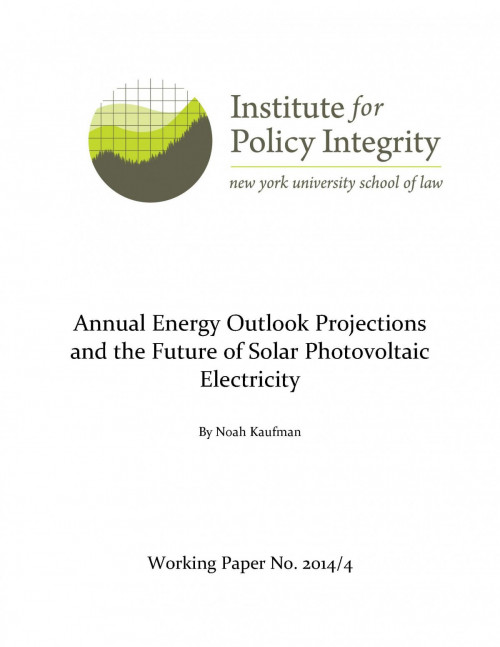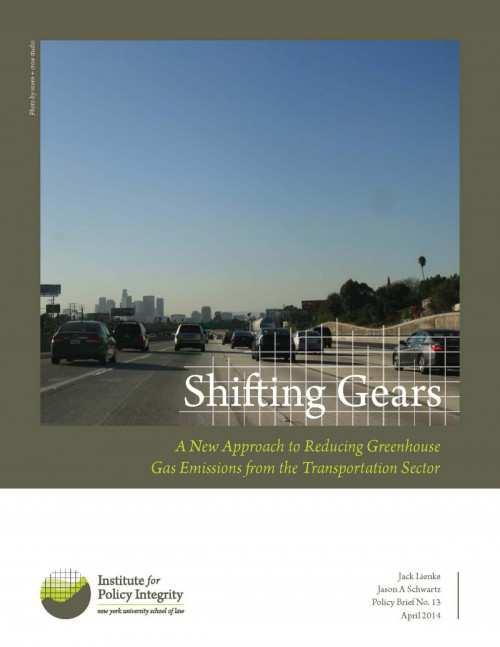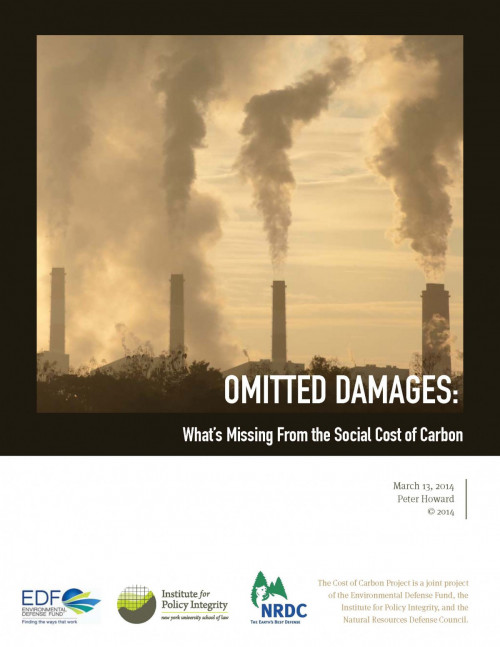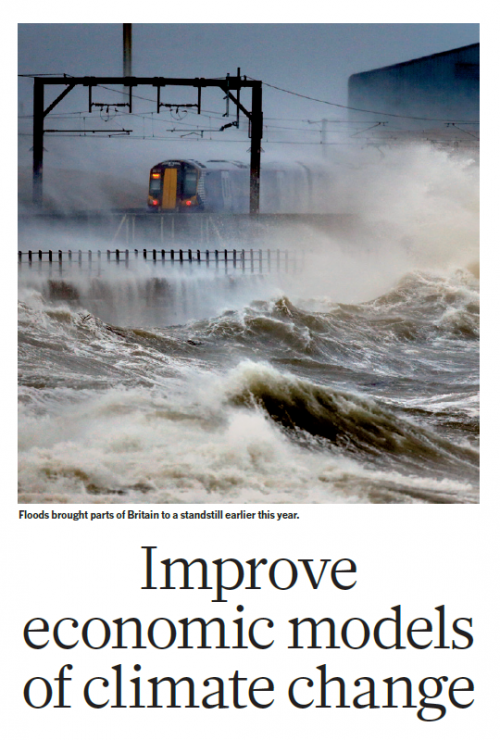The Institute for Policy Integrity produces a variety of publications. Our research reports develop in-depth research on our core issues, while our policy briefs and issue briefs provide focused analysis on more timely or particular topics. Our academic articles and working papers offer original scholarly research and analysis from established experts as well as fresh new voices.
Latest Publications
-

Annual Energy Outlook Projections and the Future of Solar PV Electricity
The topic of this paper is the assumed growth of solar photovoltaic (PV) in current energy models, with a focus on information from Annual Energy Outlook (AEO) of the U.S. Energy Information Administration (EIA). EIA resolves the difficulty of modeling solar energy into the future by assuming its current growth will not continue. However, EIA’s assumptions on the future costs of solar PV are highly pessimistic, and its methodology would appear to bias its “Reference Case” projections toward lower growth of solar energy. Sure enough, past AEOs have systematically underestimated the future growth of solar PV. Energy modelers therefore may need to adjust the AEO forecast in order to reflect a most likely baseline trajectory for solar PV.
-

Rethinking Health-Based Environmental Standards
In Whitman v. American Trucking, the Supreme Court interpreted the Clean Air Act to require the EPA to set the National Ambient Air Quality Standards (NAAQS), without considering costs. Instead, the agency must rely exclusively on health-related criteria. The authors argue that such health-based standards are problematic because there is no coherent way to set the permissible level of pollution based on health considerations alone and, ironically, the NAAQS have generally been set at levels that are inefficiently lax from an economic perspective. The authors urge a reinterpretation of the American Trucking case that would allow the EPA to consider costs-benefit analysis when it would lead to more stringent standards, as it currently does for most regulated pollutants.
-

Shifting Gears
A New Approach to Reducing Greenhouse Gas Emissions from the Transportation Sector
To overcome a stall out of “command-and-control” regulations for biofuels, EPA should move towards a flexible, market-based emissions trading system for the transportation sector.
-
Global Warming: Improve Economic Models of Climate Change
Costs of carbon emissions are being underestimated, but current estimates are still valuable for setting mitigation policy, say Richard L. Revesz, Peter H. Howard, Kenneth Arrow, Lawrence H. Goulder, Robert E. Kopp, Michael A. Livermore, Michael Oppenheimer, and Thomas Sterner in Nature.
-

Omitted Damages: What’s Missing from the Social Cost of Carbon
The social cost of carbon is an estimate of the economic damage done by each ton of carbon dioxide spewed into the air. Howard examines the Integrated Assessment Models used to produce the social cost of carbon estimate and gives a comprehensive review of what each model accounts for and what each model misses.

